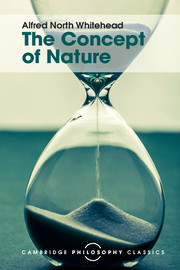Summary
The ensuing lecture is concerned with the theory of objects. Objects are elements in nature which do not pass. The awareness of an object as some factor not sharing in the passage of nature is what I call ‘recognition.’ It is impossible to recognise an event, because an event is essentially distinct from every other event. Recognition is an awareness of sameness. But to call recognition an awareness of sameness implies an intellectual act of comparison accompanied with judgment. I use recognition for the non-intellectual relation of sense-awareness which connects the mind with a factor of nature without passage. On the intellectual side of the mind's experience there are comparisons of things recognised and consequent judgments of sameness or diversity. Probably ‘sense-recognition’ would be a better term for what I mean by ‘recognition.’ I have chosen the simpler term because I think that I shall be able to avoid the use of ‘recognition’ in any other meaning than that of ‘sense-recognition.’ I am quite willing to believe that recognition, in my sense of the term, is merely an ideal limit, and that there is in fact no recognition without intellectual accompaniments of comparison and judgment. But recognition is that relation of the mind to nature which provides the material for the intellectual activity.
An object is an ingredient in the character of some event. In fact the character of an event is nothing but the objects which are ingredient in it and the ways in which those objects make their ingression into the event. Thus the theory of objects is the theory of the comparison of events. Events are only comparable because they body forth permanences. We are comparing objects in events whenever we can say, ‘There it is again.’ Objects are the elements in nature which can ‘be again.’
Sometimes permanences can be proved to exist which evade recognition in the sense in which I am using that term. The permanences which evade recognition appear to us as abstract properties either of events or of objects. All the same they are there for recognition although undiscriminated in our sense-awareness. The demarcation of events, the splitting of nature up into parts is effected by the objects which we recognise as their ingredients.
- Type
- Chapter
- Information
- The Concept of NatureTarner Lectures, pp. 92 - 104Publisher: Cambridge University PressPrint publication year: 2015



